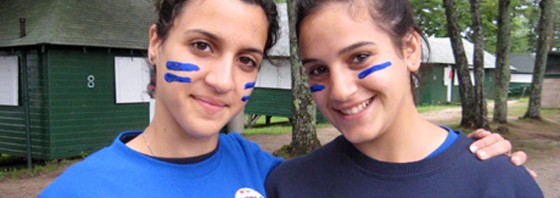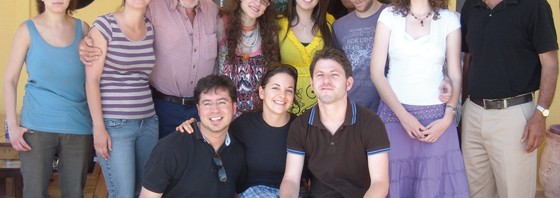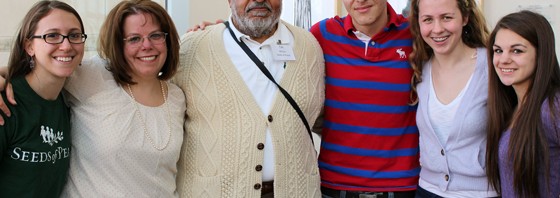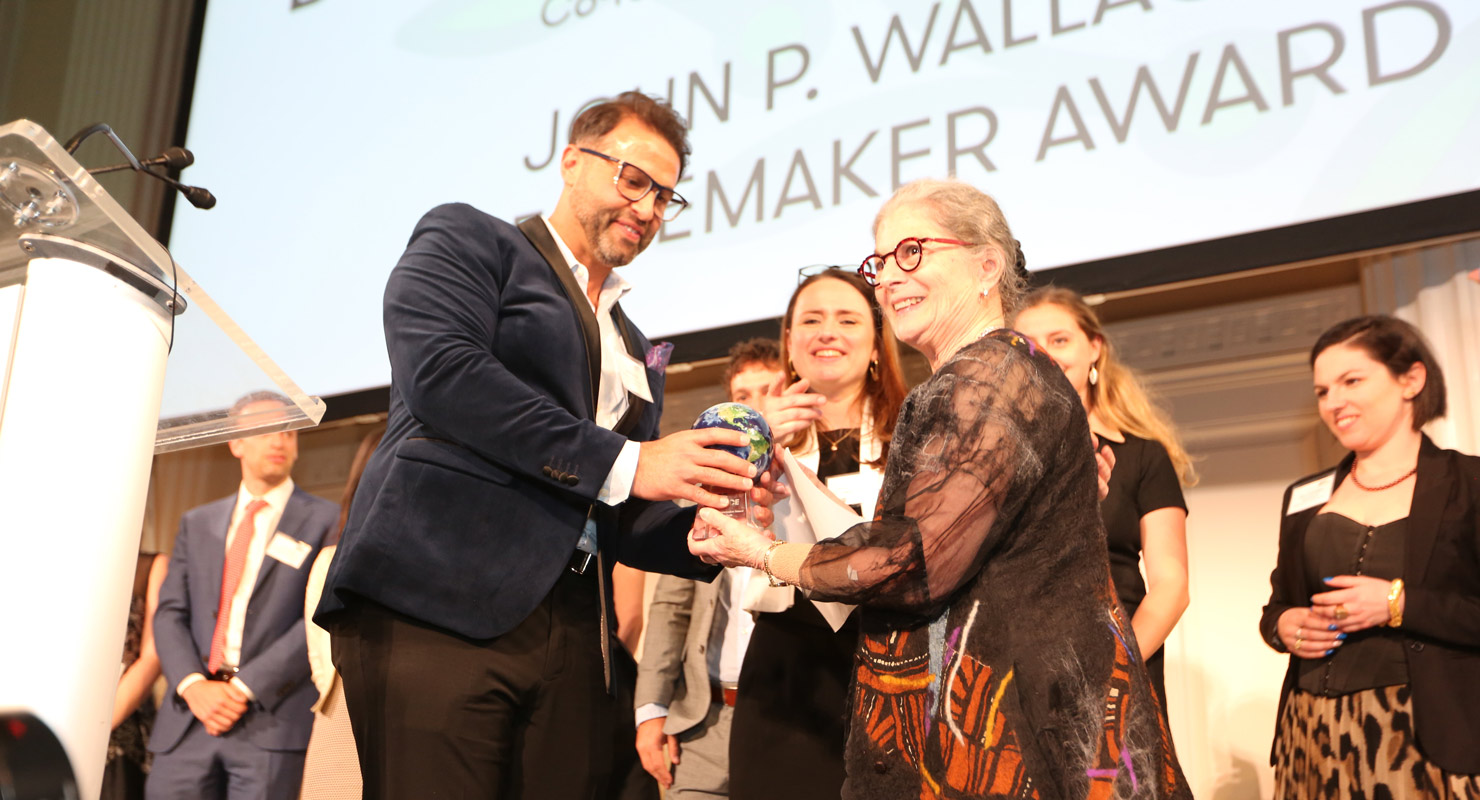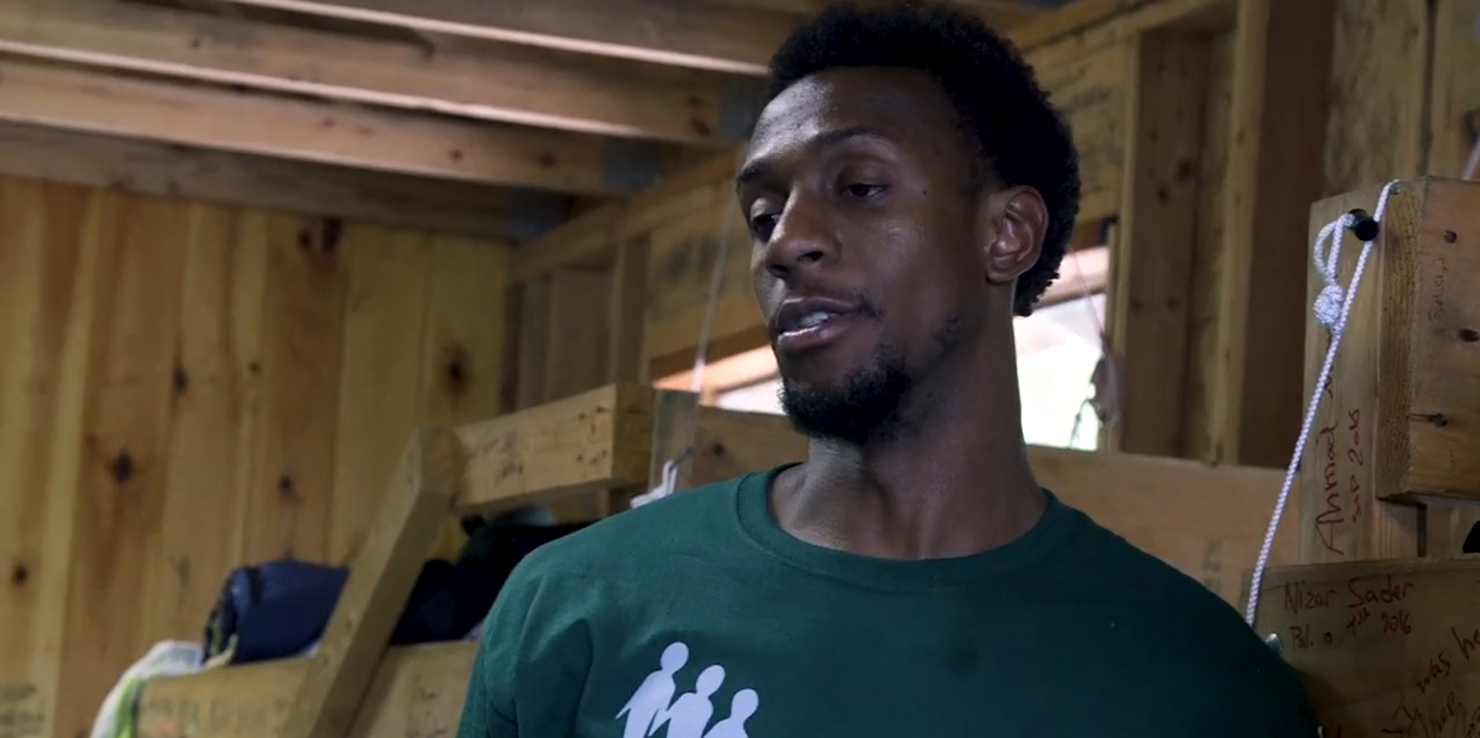MAINE, UNITED STATES | Going to summer camp is a rite of passage for many young people in the United States.
It offers a chance to have fun outdoors while making new friends away from home.
The international camp set in woods by a glittering lake in Otisfield, Maine, follows the same tradition but it also has a lofty ambition: to sow the seeds of peace in the Middle East.
Every year the youth organisation, Seeds of Peace, brings 340 teenagers to this remote site.
Most are from Israel, the Palestinian territories and other parts of the Arab world.
“Seeds of Peace is the best experience that ever happened to me,” says Nadia Tibi, 15, from Israel. “I’ve met people I never thought I would meet.”
As she speaks, Nadia stands arm-in-arm with Majdoline Shahed, a 17-year-old Palestinian from Jerusalem.
Together the teenagers shout in support of their team-mates competing on the playing field. They wear matching blue t-shirts and face-paint.
Opportunities to meet
For the past three weeks Nadia and Majdoline have slept in neighbouring bunk beds.
Each day they eat together, do joint activities and attend dialogue sessions with counsellors to discuss their experiences of the Arab-Israeli conflict.
“This is the only place that you can be with people from different cultures and countries and talk very honestly,” says Majdoline.
Seeds of Peace was set up by the late American journalist John Wallach in 1993.
He saw there were few opportunities for young Israelis and Palestinians to meet and believed this encouraged them to grow up seeing each other as enemies.
The camp has seen highs and lows reflecting progress and setbacks in the Middle East peace process.
The first 46 boys who travelled to Maine were together when news broke of the Oslo Accords.
“We were euphoric,” remembers co-founder, Bobbie Gottshalk.
“We thought the weight was off everyone’s shoulders and now we were just going to work on making the peace happen.”
The campers were invited to attend the signing ceremony in Washington after they impressed First Lady Hillary Clinton during a White House tour.
“Then things started to unravel.”
‘Nearly destroyed’
On Ms Gottshalk’s table in her cabin at the camp sits a photograph of Asel Asleh, a popular Arab-Israeli Seed.
He was shot dead by Israeli security forces at the start of the second Palestinian intifada in 2000.
“It nearly destroyed us,” she says. “But you know young people have a spirit about them, an optimism that just can’t be quelled that easily.”
Outside camp director Leslie Lewin speeds across the waterlogged grass in a golf cart on her way to inspect a rope course. Constant rain has been the latest challenge at the camp.
Yet Lewin is convinced the past three weeks will have a life-changing effect on the teenagers who are about to go home.
“For so many of these kids, coming here is what it took to hear the other side of the story.
“I think that this basic level exposure has a really strong impact on the future.”
Security restrictions make it hard for former Seeds in the West Bank and Gaza to meet Israelis they befriend at the camp in Maine.
But where possible, workers in the region arrange follow-up events and dialogue sessions.
“Things don’t end after you leave camp. Actually you have more to do when it finishes,” says Mirna Ansari, a second-year camper.
She has stayed in touch with an Israeli friend she met at camp two years ago through the Internet. The girl also visited her family in Ramallah.
“She really enjoyed it,” says Mirna.
“Now I do think that there will be peace between Israel and Palestine. If we as teenagers believe that, then when we grow up we will work on it.”


